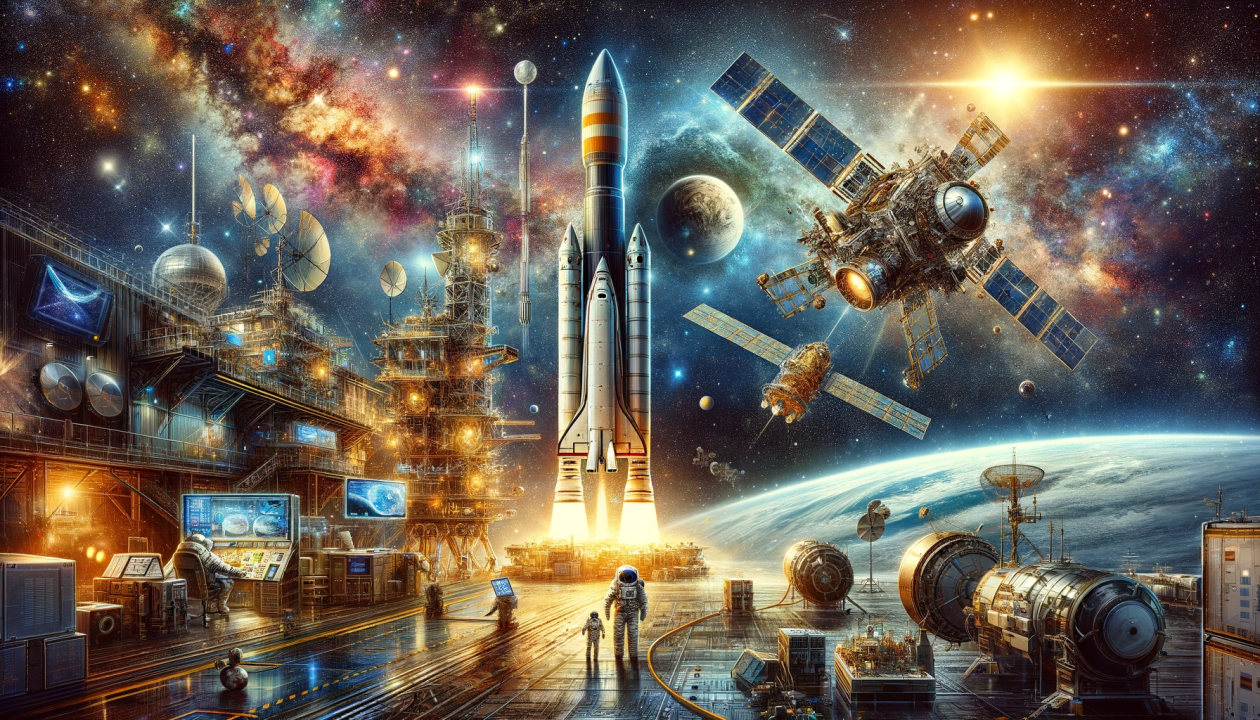Space has always fascinated humanity. From the first telescope to the Apollo Moon landing, and now to SpaceX’s reusable rockets, we’ve come a long way in understanding the universe. But the future of space exploration looks even more exciting. Advances in science and technology are transforming how we explore, communicate, and even plan to live beyond Earth.
In this blog, we’ll explore how modern innovations like artificial intelligence, robotics, quantum computing, advanced satellites, and space mining are shaping the next era of space exploration.
Why Space Exploration Matters in the 21st Century
The universe is not just a mystery; it’s also a source of opportunities.
- Scientific curiosity: Understanding the origins of stars, planets, and galaxies.
- Technological growth: Many space technologies—like GPS and satellite communication—improve our daily lives.
- Economic opportunities: From asteroid mining to space tourism, industries are preparing for trillion-dollar growth.
- Survival of humanity: Colonizing planets like Mars could ensure the long-term survival of our species.
Role of Science in Modern Space Exploration
Breakthroughs in Astronomy and Physics
Modern telescopes, such as the James Webb Space Telescope (JWST), provide unprecedented images of distant galaxies and exoplanets. These breakthroughs help scientists understand:
- How stars and galaxies are born.
- The possibility of Earth-like planets.
- Clues about the origins of life.
Quantum Science and Space
Quantum technology is revolutionizing space research by improving:
- Data transmission through quantum communication.
- Satellite navigation with more accuracy.
- Space security with quantum encryption.
Technology Driving the Future of Space Exploration
Artificial Intelligence (AI) and Machine Learning
AI is becoming the brain of space missions. It can:
- Analyze large amounts of data collected from telescopes and satellites.
- Help rovers on Mars make decisions without human intervention.
- Predict spacecraft system failures before they happen.
Example: NASA’s Perseverance Rover uses AI to navigate the Martian surface safely.
Robotics in Space
Robots make space exploration safer and more efficient.
- Robotic arms on the International Space Station (ISS) perform complex repairs.
- Autonomous rovers explore terrains unsafe for astronauts.
- Future missions may use robotic miners to extract minerals from asteroids.
Reusable Rocket Technology
Companies like SpaceX and Blue Origin have changed the game with reusable rockets.
- Reduces cost of launching satellites and missions.
- Makes space travel more accessible.
- Accelerates future projects like Moon bases and Mars colonization.
Future Possibilities: Colonization Beyond Earth
Human Colonization of Mars
- NASA and SpaceX are actively working on missions to send humans to Mars.
- Challenges include life support systems, radiation protection, and food production.
- Innovations in 3D printing, hydroponic farming, and AI-driven healthcare are making this dream closer to reality.
Lunar Bases as Stepping Stones
The Moon will serve as a testing ground for deeper space exploration. Lunar bases could:
- Support resource extraction like water ice.
- Act as a launchpad for Mars and beyond.
The Economic Future of Space
Space Mining – The Trillion-Dollar Industry
Asteroids contain valuable metals like platinum, gold, and rare earth elements. Companies like Planetary Resources are exploring ways to mine them.
Benefits include:
- Reducing resource shortages on Earth.
- Fueling advanced technologies.
- Boosting the global economy.
Space Tourism
Companies like Virgin Galactic and Blue Origin are opening space travel for civilians. Soon, space hotels may become a reality.
The future of space exploration is no longer science fiction—it’s science reality. With advancements in AI, robotics, reusable rockets, space mining, and human colonization projects, humanity is closer than ever to becoming a multi-planetary species.
The 21st century is set to be the golden age of space exploration, where science and technology will not only help us understand the universe but also reshape life on Earth.
FAQs
Q1. Why is space exploration important for humanity?
Space exploration helps us advance technology, discover new resources, and prepare for life beyond Earth.
Q2. What role does AI play in space missions?
AI helps in data analysis, autonomous navigation, predictive maintenance, and decision-making for spacecraft and rovers.
Q3. Will humans live on Mars in the near future?
NASA and SpaceX plan to send humans to Mars in the 2030s, but long-term colonization will take several decades.
Q4. How does space technology affect our daily lives?
Technologies like GPS, satellite TV, weather forecasting, and internet connectivity are direct results of space science.
Q5. What industries will benefit from future space exploration?
Mining, tourism, telecommunications, defense, and agriculture will benefit the most.

